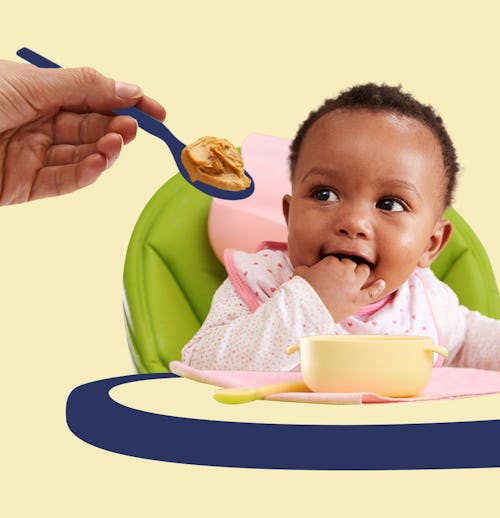
Like most milestones in your infant’s life, starting solids is a journey. Discovering that your baby loves broccoli and yogurt but turns up their nose at avocado can be a delightful surprise, though the journey can also feel overwhelming at times. We already know what’s running through your mind: What foods should I start with? How should I prepare them? What about allergies? In addition to your child’s pediatrician, there are several expert-backed resources available to parents when starting solids and navigating how to help prevent food allergies. The National Peanut Board offers evidence-based resources on peanut allergy prevention, especially important as your baby explores new foods when starting solids. And the latest offer excellent news: Based on the groundbreaking LEAP study, recommendations from both the American Academy of Pediatrics and the Dietary Guidelines for Americans are clear in stating children should be introduced to infant-safe peanut foods at 4-6 months (much earlier than past guidelines) in order to reduce the development of peanut allergies by up to 86%. With new parents born every day, these guidelines are important for families to understand which is why the National Peanut Board has developed a new, first-of-its-kind health education tool to spread the word — Little Peanut.
Little Peanut is a loveable plushie with a scannable QR code that leads to information offering parents and caregivers the knowledge to safely introduce peanut foods early and help prevent peanut allergies. Designed as an educational tool, Little Peanut puts the expertise and knowledge of healthcare professionals like pediatricians, registered dietitians and food allergy experts into your hands — because you’ve already got a ton on your plate. In addition to the latest science and recommendations on peanut allergy prevention, you’ll find a range of easy-to-make steps to use when introducing your baby to peanut foods, along with recipes for the whole family. You can access all of the information through Little Peanut’s website, but you may soon spot the plushie character at your pediatrician’s or family doctor’s office, too. If you do happen to catch Little Peanut in real life, feel free to use its attached QR code to learn more.

Historically, peanut introduction was recommended in the later half of a child’s first year of life, but a growing body of research suggests beginning first bites of peanut foods at 4-6 months of age, depending on the child’s risk factors, is beneficial in preventing peanut allergies. Babies with severe eczema or a known egg allergy (or both) may even benefit from starting peanut foods as early as 4 months, while most other babies can start at 6 months with the introduction of other common allergens like eggs. One of the easiest ways to introduce peanut foods to babies is simply thinning out peanut butter with breast milk or formula to a thinned consistency that a baby can safely tolerate. For additional infant-safe ideas for introduction, check out these top five ways to help your baby enjoy peanut foods.
Not only can Little Peanut’s guidance help potentially prevent allergies from cropping up, it can also help encourage more adventurous eating — music to a parent or caregiver’s ears. Little Peanut offers family-friendly recipes and easy ways to get kids involved in the cooking process. They may even end up loving peanuts, a major bonus considering how nutrient-dense they are. Peanuts contain 7 grams of plant-based protein — the highest protein content of any nut — along with fiber and over 30 essentials micronutrients, making them a fantastic staple in your child’s diet.
To make solids and peanut food introduction less messy and more seamless, lean into the support you’ll find with Little Peanut. With all of its resources, you’ll feel like you have a pediatrician, allergy expert, and registered dietitian on speed dial, making the whole parenting thing (we all don’t know what we’re doing, OK?!) easier and a lot more comforting. Bookmark the site, send it to your mom, dad, or caregiver friends, and be sure to scan the Little Peanut plushie the next time you see it at your doctor’s office.
0 comments:
Post a Comment